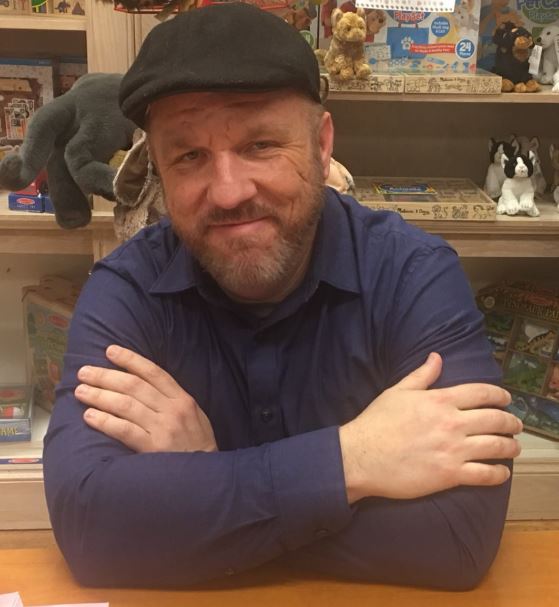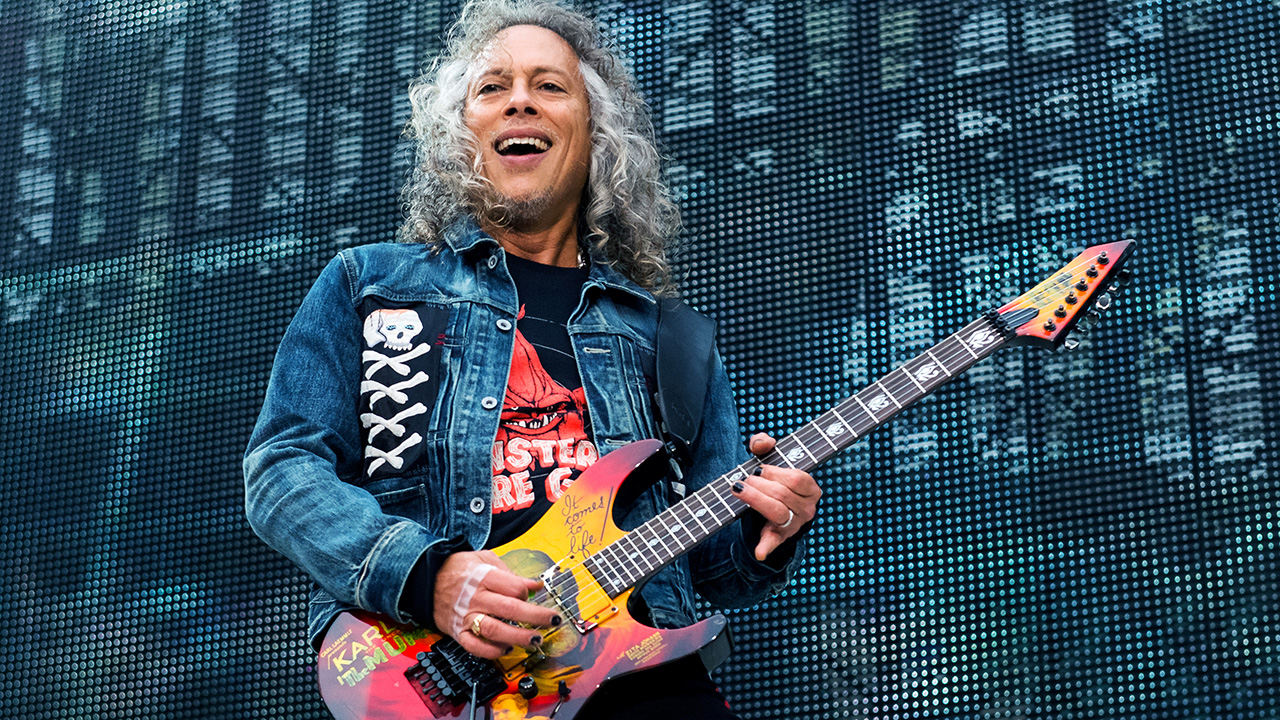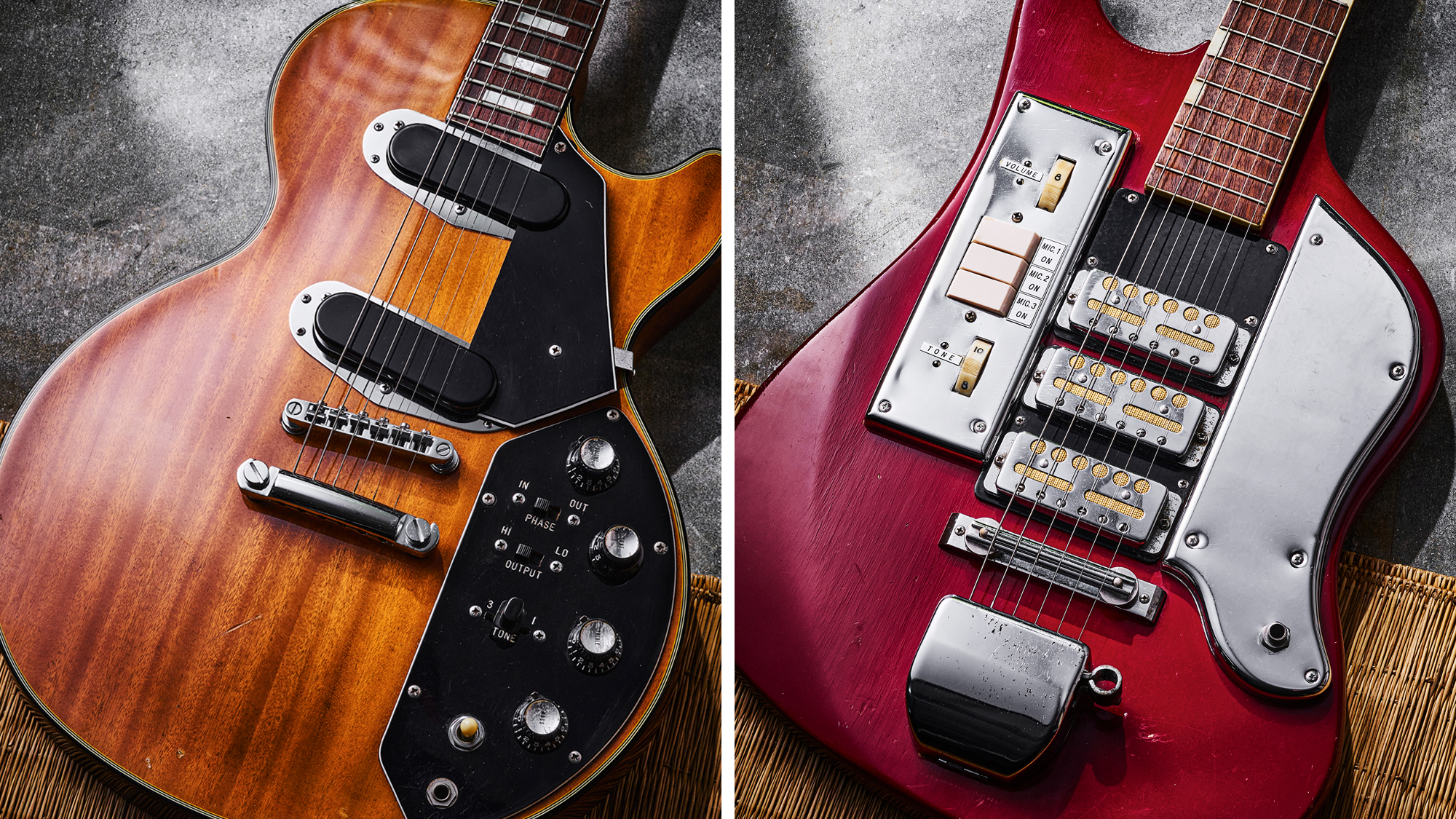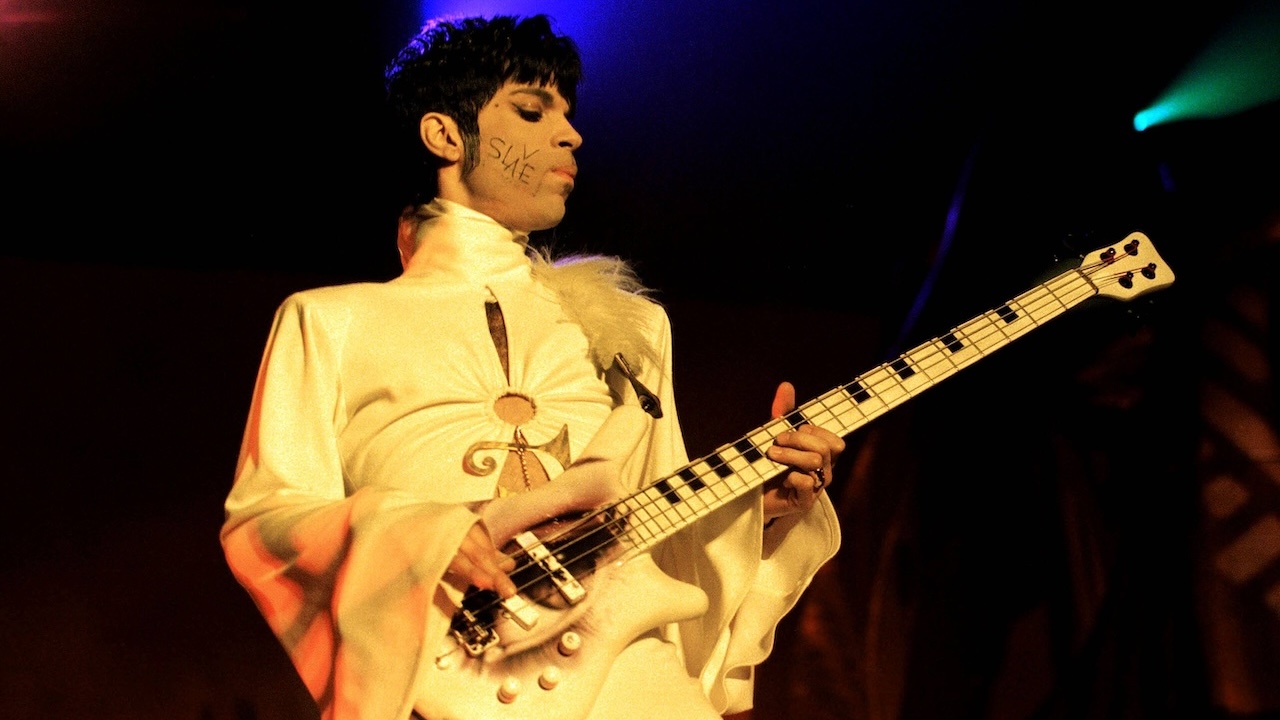Steve Howe: "There has to be a certain accuracy in the live sounds. It was possible because I was using Line 6 – I was fascinated with the Variax"
The Yes legend reflects on his time fusing prog, rock and pop with Asia, as the supergroup releases The Reunion Albums: 2007-2012
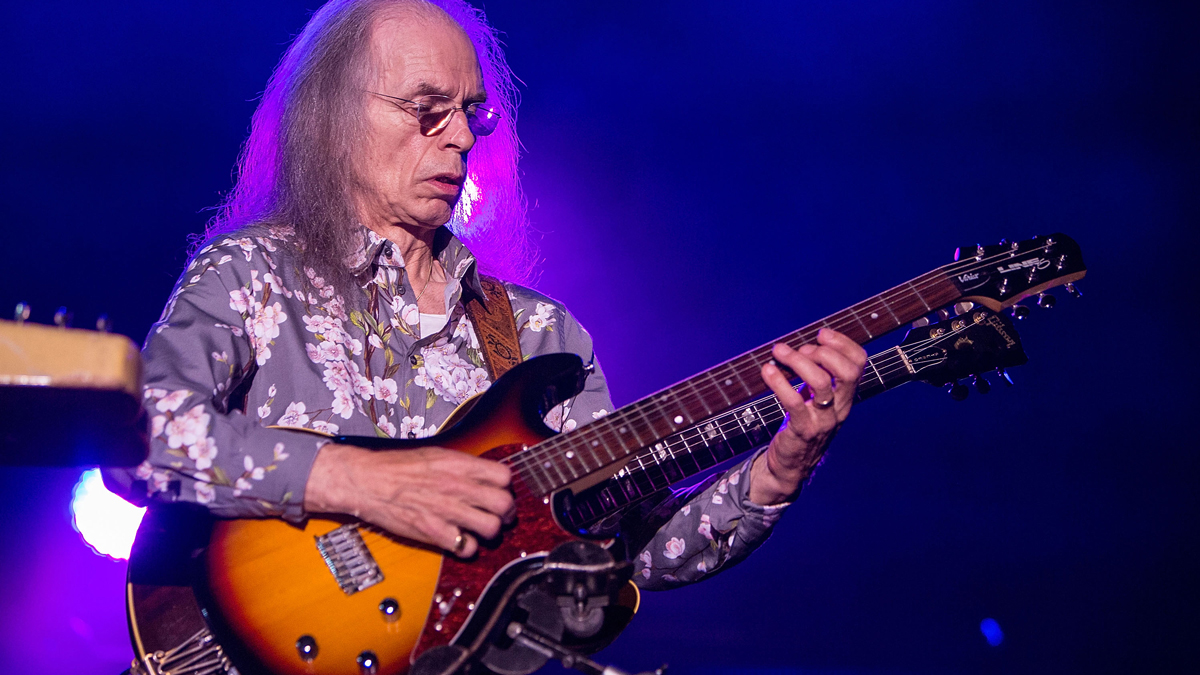
Multi-platinum selling supergroup Asia are celebrating their 40th anniversary with new 5-CD boxset, The Reunion Albums: 2007-2012. The package includes the three albums (Phoenix, Omega and XXX) that reunited original members John Wetton, Steve Howe, Carl Palmer and Geoff Downes. The reunion albums are presented together in a collector’s boxset designed by Roger Dean, who produced all of the artwork on the original albums.
A dual-CD live recording, Fantasia: Live in Tokyo rounds out the package and features many of the tracks from the band’s first two albums, Asia (1982) and Alpha (1983) as well as heritage tracks from each band member’s musical history. The live concert also includes an acoustic version of Ride Easy, a B-side from the band’s debut single, Heat of the Moment, performed for the first time.
We spoke with guitarist Steve Howe about the new boxset, 50 years of Yes's landmark single Roundabout, and his undying love for Martin guitars…
How did The Reunion Albums: 2007-2012 boxset come about?
“Because there hasn’t been much touring, there were discussions with management about the idea of taking a look at those three albums which had recently returned to our ownership.
“When I listened back to Phoenix, Omega and XXX, it was a delight to put them in perspective. It was a very productive period for the band. Phoenix has a bit more intricacies and proggy bits and the other albums are a development from that starting point. So we decided to put together a boxset with Roger Dean and everyone else who’s worked with us. It’s marvelous.”
The set includes the 2CD live concert Fantasia, Live in Tokyo from 2007. Did the idea to do a full-on reunion album build out of that tour?
Get The Pick Newsletter
All the latest guitar news, interviews, lessons, reviews, deals and more, direct to your inbox!
“When we met in 2006, Geoff said he and John were starting to write together and that there was enthusiasm from Japan, America and England. At the time, Yes had taken a hiatus and I thought, 'Great! I hadn’t played this music in years.' My only pre-condition was that we would play the songs more meticulously than we did in the old days.
“One of the things I learned with Yes in the later years was that there has to be a certain accuracy in the parts, sounds and development. For me, this was possible because I was using Line 6 equipment. I was fascinated with the Variax and the company was so interested in how I was going to use it and their amps. Up to that point I’d never use any programming amps or pedalboards.
“The original premise was to get on tour, play and make sure there was still good glue between us. That’s when the idea came along about a reunion album, and we started writing for Phoenix.”
Of the five Asia albums you played on is there one song that you consider a favorite?
Heat of the Moment signified the entry point of this marriage between rock, pop and prog
“I can’t really pick one that signifies the idea of a band wanting to find success, but I also can’t underestimate the power of the first album when Geoff, John, Carl and I came together. That first album carries the balance of the pop approach with the prog history. I would say that Time Again has a lot of that attitude. Heat of the Moment was another track that signified the entry point of this marriage between rock, pop and prog.”
This year marks the 50th anniversary of Yes classic Roundabout. What thoughts come to mind when you look back on it now? Did you know at the time it was going to be something special?
“It would be a bit egotistical to say yes, because anything you write you think is good, otherwise you wouldn’t spend months designing, recording and polishing it.
“At the time, Yes had designed this idea that we didn’t have to rush into songs and could have longer innuendos before the song started. I’ve always been interested in intros and outros as much as the whole piece, and that introduction on Roundabout is the kind of idea I like.
“I will say that when I hear that song now the thing that stands out is the production and Bill Bruford’s drumming. He didn’t play conventionally and that’s what Yes was trying to be – as unconventional as possible.”
Are there any projects with Yes that you’re currently working on right now?
“We’ve got some unannounced plans about the early part of next year, but right now, touring is the focus of our attention. The European tour has been moved to early spring and we’re going to be playing Relayer, which will be a great challenge.
It’s no secret that you’re a fan of Martin guitars. When did your love affair with them begin?
“It started in 1968. I saw Paul Simon, Lonnie Donegan and a few others playing Martins and I realized the sound I liked came from them. I looked out for one and found a 1953 00-18 that I bought for £132. I’ve still got it and it’s actually the best Martin I’ve ever had.
“It isn’t a guitar I play as much as I used to because my playing style and demand in the guitar are based around the last signature model they did, the MC-38 Steve Howe, which has a cutaway and an open headstock. It’s everything I want in a performance guitar.”
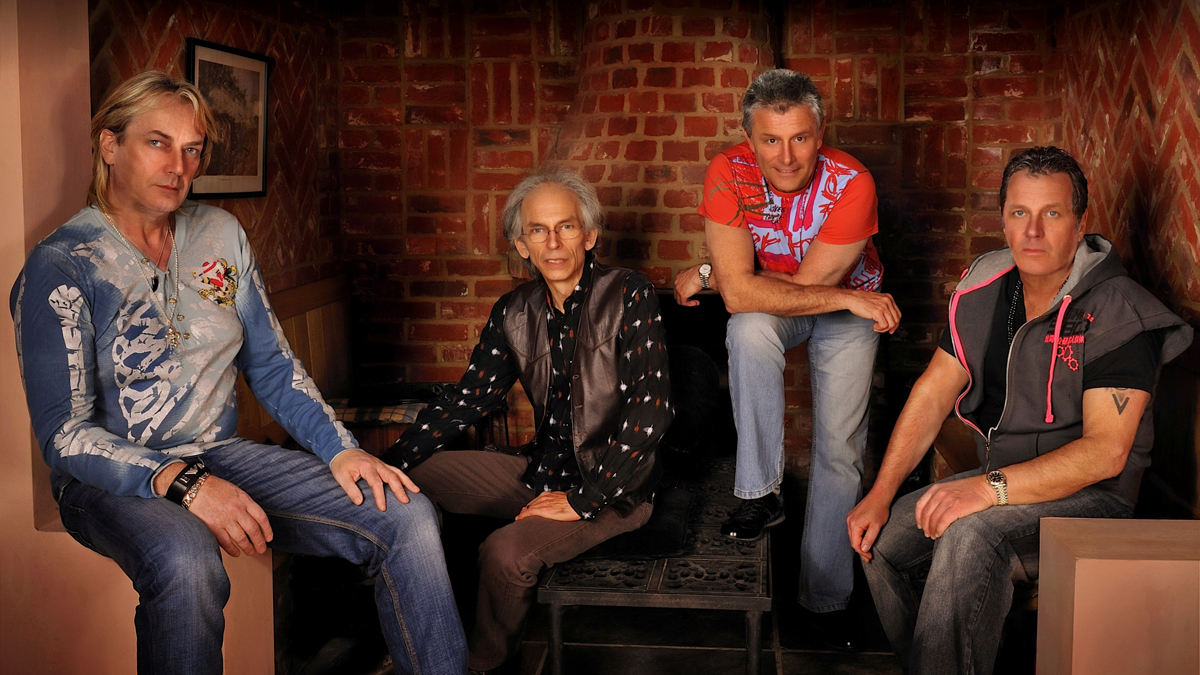
How would you like Asia to be remembered?
“That’s a tricky one, because we really had three periods. We had the original period with the two albums and tours and then there was that middle period where Geoff was working with other people and I rejoined for a while, and then you have this last period covered by the three reunion albums.
“You have to take into account all of those periods but, again, you can never underestimate the beauty and power of that first album. It set the bar very high and right up until we toured in 2012 we were still in its afterglow. That album has a length, breadth and high quality to it. From Heat of the Moment right to the last track, Here Comes the Feeling. We were rocking.”
- The Reunion Albums 2007-2012 is out now via BMG.
James is a guitarist and freelance writer who's interviewed some of the biggest names in music. He is the author of four books and his writing credits include work for Guitar World, AXS and Yahoo! as well as for his hometown newspaper where he writes on a variety of topics with both passion and humor. As a guitarist, he's performed everywhere from local bars and nightclubs to some of the biggest stages in front of thousands of music fans.
“Tom would say, ‘Play your guitar with a car key.’ It was very experimental”: Little Feat's Fred Tackett recalls Tom Waits' left-field approach to guitar playing – and his one-of-a-kind studio sessions
“Seeing friends and heroes of mine having their solos plagiarized broke my heart”: Giacomo Turra used their solos note-for-note for his own viral content. Now the guitarists who had their playing “stolen” are speaking out

